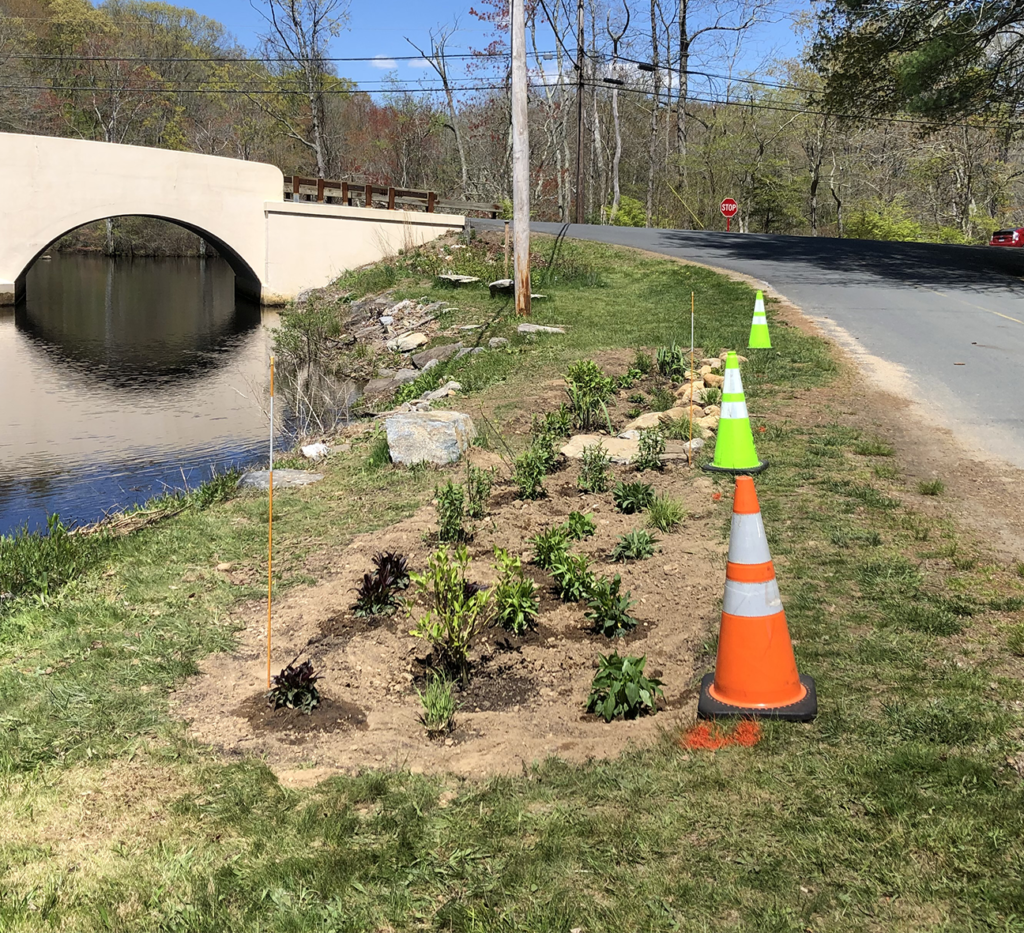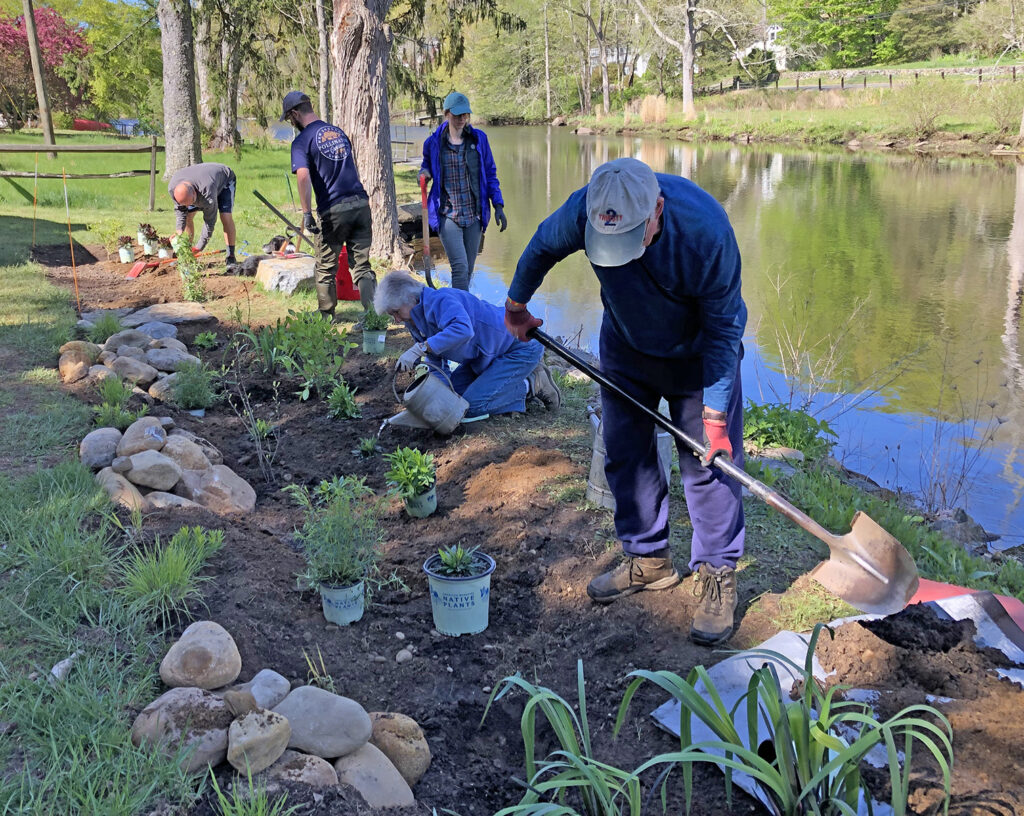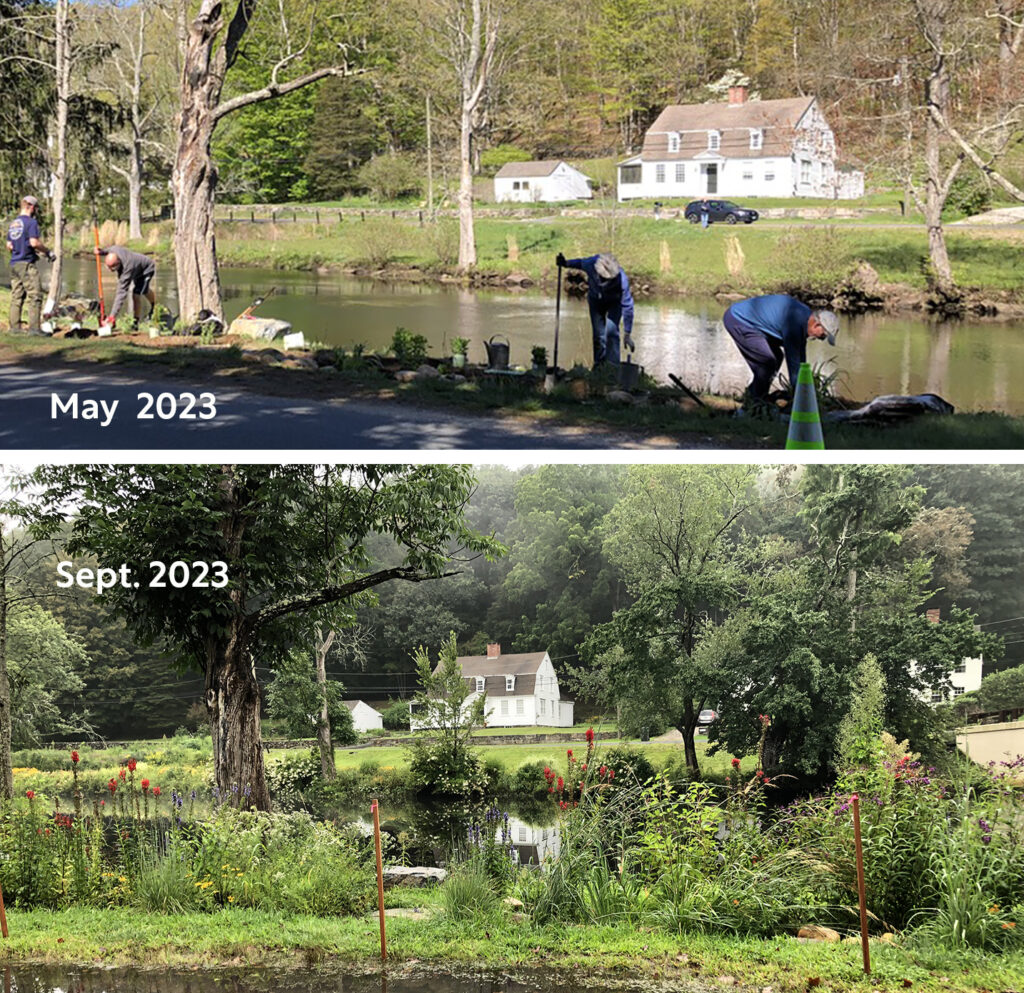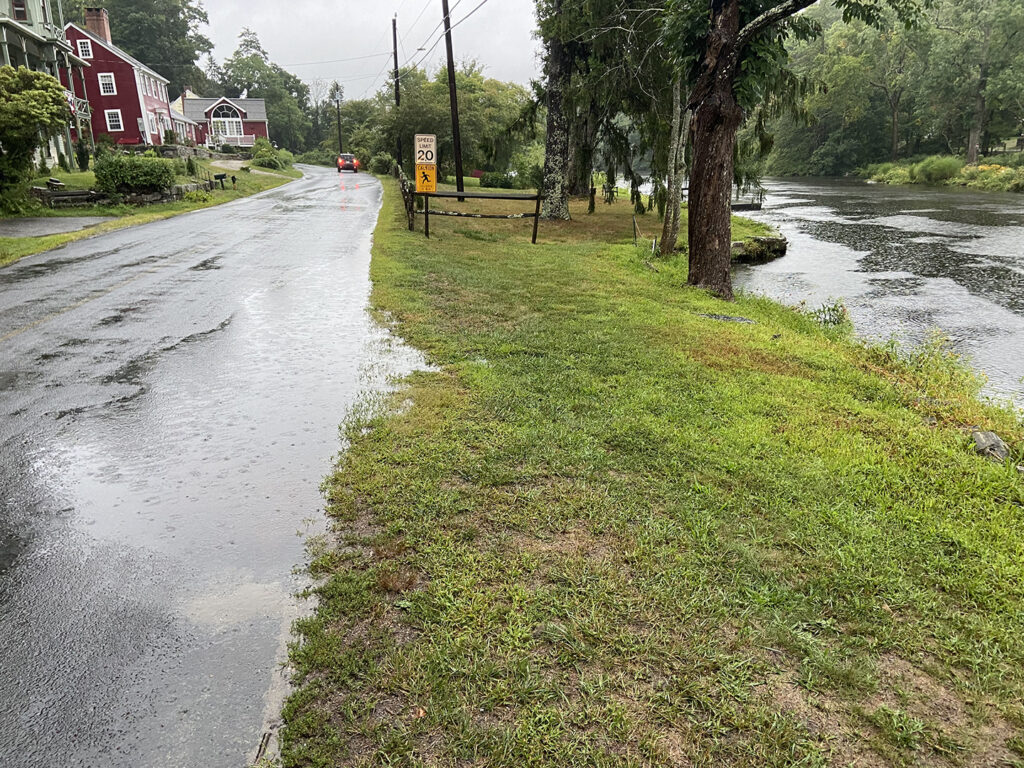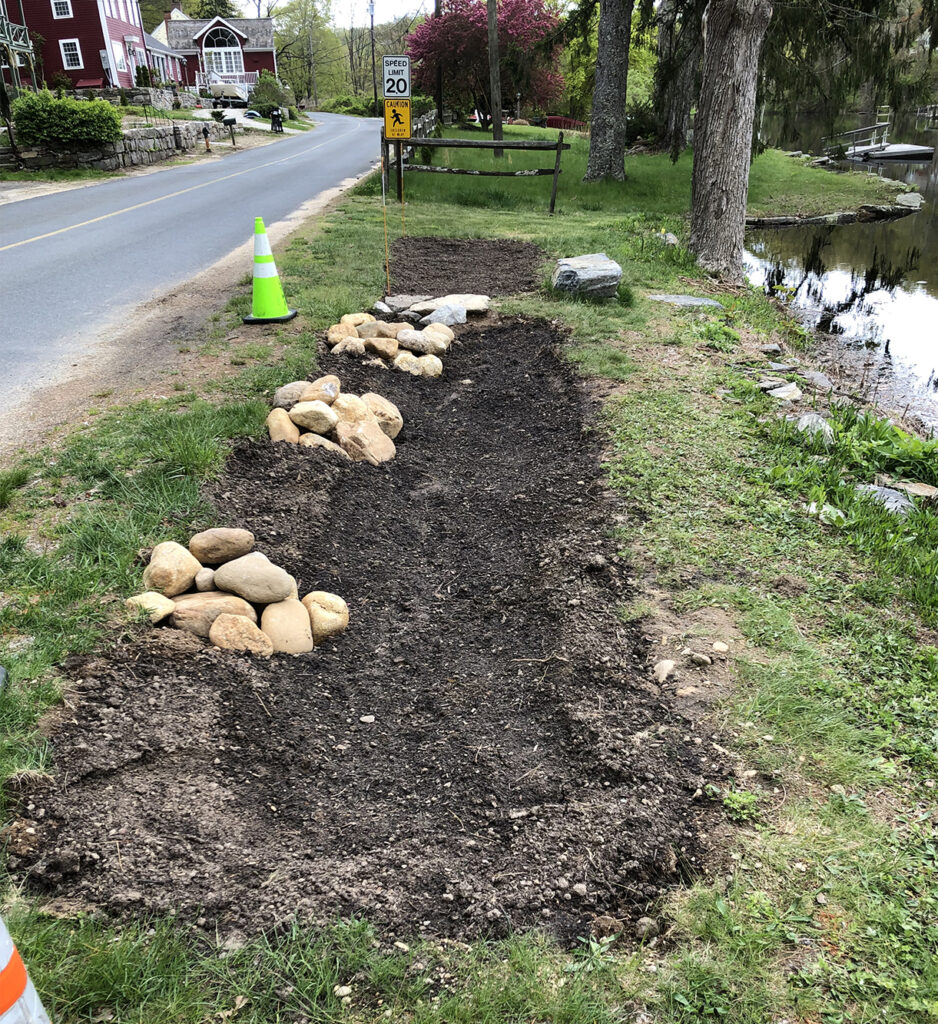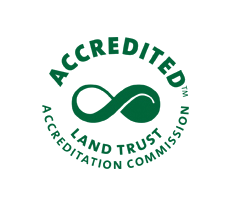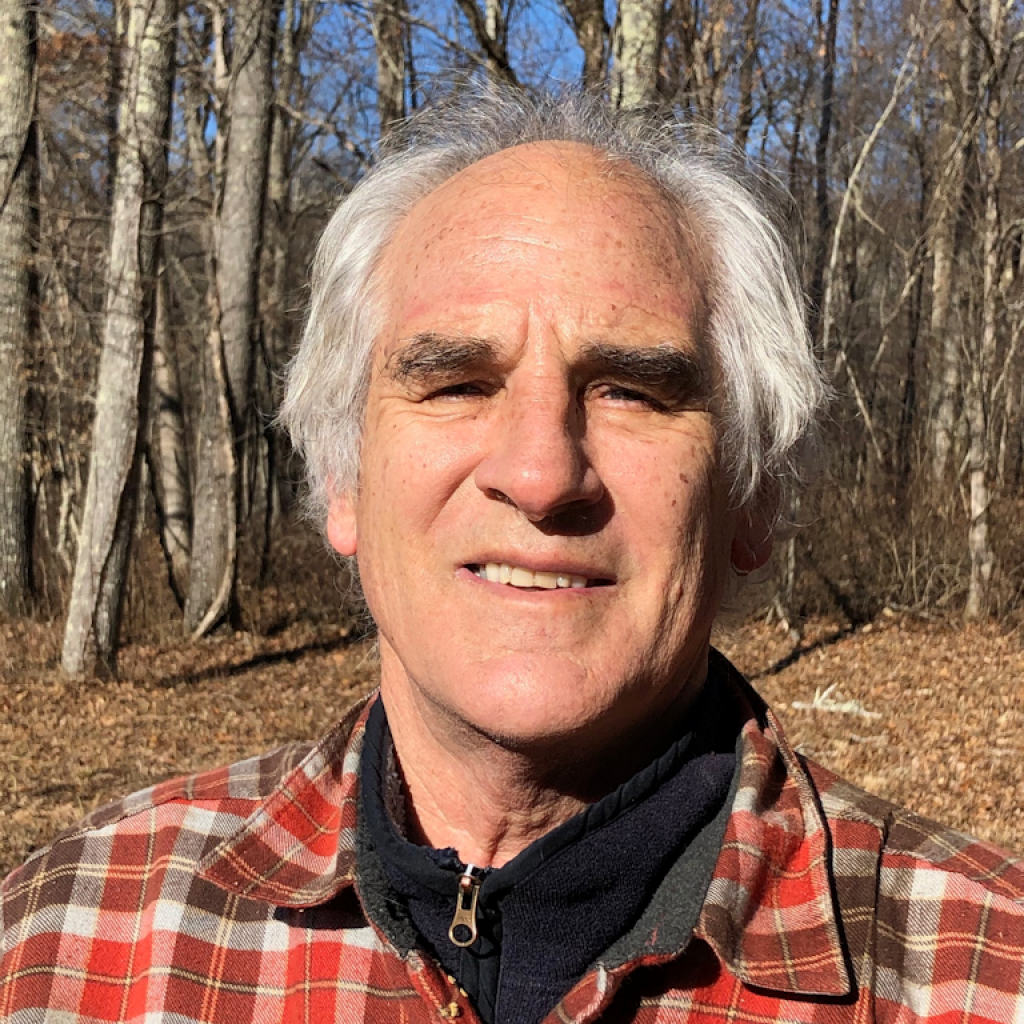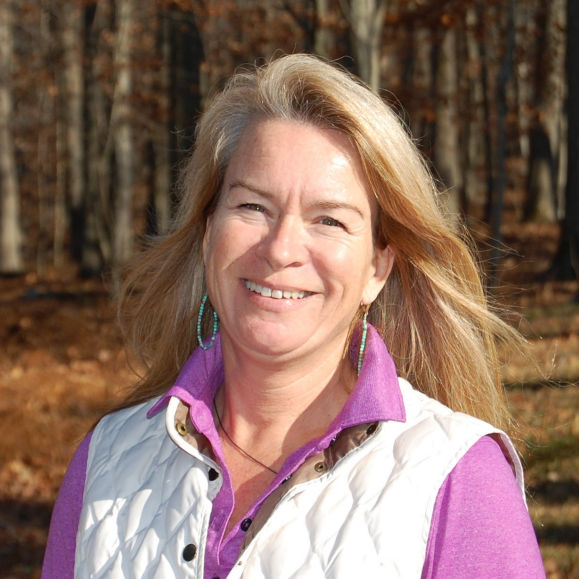In May 2023, Lyme Pollinator Pathway (LPP) invited volunteers to help install a second dry swale native plant rain garden at Reed Landing. This project was designed to be educational for hands-on volunteers, as well as to be an inspiration and guide to anyone who views or learns about it.
The placement of the rain gardens at Reed landing is intended to mitigate undesirable impacts caused by stormwater runoff. The Phase 2 rain garden was placed in an area of the property where water had historically pooled on the road before it ran off unimpeded over the turf grass into the Eightmile River. Evidence of erosion was visible. The 250 square-foot Phase 2 garden is designed to prevent erosion and to slow the stormwater so that it filters through the roots of the native plants, which remove pollutants before they flow into the river. The project enhances the ecological value of the property through habitat restoration by the removal of invasive species and the installation of native perennial wildflowers and shrubs, which our wildlife depend upon for survival. Not only has this improved the biodiversity of the lot, but it has added to the aesthetic enjoyment and education of visitors. The project focused on continued volunteer and community engagement and expansion of ecological-centered educational opportunities.
In order to prepare the garden, half of the it was smothered by the cardboard method to kill the existing vegetation, installed during an October 2022 volunteer learn and work party. The other half was excavated by the Lyme town crew to create a dry swale (depression in the ground to collect water) in April 2023. The entire Phase 2 garden was then prepared by hand shovel and amended by Mike Baczewski of NEPG before the May 2023 work party. Mike brought in rocks of various sizes to help with the function and aesthetic value of the garden. He created an inviting stone path that divides the two halves of the garden and leads to a sitting stone along the river.
With this project, the LPP wishes to show that rain gardens can be strategically placed on anyone’s property to absorb and filter stormwater pollution that runs off of impermeable surfaces, such as driveways and roofs. It is within the ability of any landowner to create a garden like this. In addition, we wish to show that native plantings anywhere in a backyard or landscape benefit all creatures.
The project was overseen by Wendolyn Hill, Lyme Open Space Coordinator (LOSC) and co-chair of LPP, with professional help from New England Pollinator Gardens (NEPG), funded by a grant from the Eightmile River Wild and Scenic Coordinating Committee ERWSCC.
